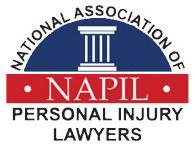Many family, friends, colleagues and client’s ask me “What is the ‘legal limit’ for DWI in New Mexico?” Like most things in law, I answer “It depends.” The answer depends on your age; what type of vehicle you are driving and what exactly do you mean by the term “legal limit.”
Before I can answer the bigger question of “What is the ‘legal limit’ in New Mexico”, I must first answer what is meant by the term “legal limit.” In New Mexico DWI law, the “legal limit” is the level of presumption or the level of alcohol in your blood where you are presumed to be impaired and the State does not have to prove impairment beyond a reasonable doubt at trial. This level is commonly referred to as a “BAC” or Blood Alcohol Concentration and can be gathered by the driver providing a breath sample or a blood draw. If you provide a breath sample, the DWI officer will immediately know the driver’s BAC score because the breath testing machine (usually the Intoxilyzer 8000) will print the results following the test. However, a blood draw must be sent to the Scientific Laboratory Division or “SLD” for analysis and the BAC results can take weeks or even months to come back.
Now, to answer the bigger question, in New Mexico, the “legal limit” is .08 for persons 21 years or over and .02 for persons under the age of 21 years when driving a passenger vehicle or non-commercial vehicle. When operating a commercial vehicle the “legal limit” drops to .04.
However, the State may proceed with a DWI prosecution even if the driver has a BAC score lower than the “legal limit” or when there is no BAC score. Some circumstances leading to no BAC score is the driver is unable or unwilling to provide a breath test or blood draw. Under the theory of “impaired to the slightest degree” the State cannot presume impairment but must prove, at trial, that you’re ability to operate a motor vehicle was impaired by the consumption of alcohol or drugs even to the slightest degree. Under this theory, the Prosecution will rely on your exhibited “bad” driving, signs of intoxication, and performance on standard field sobriety tests when trying to prove the Defendant’s impairment.







